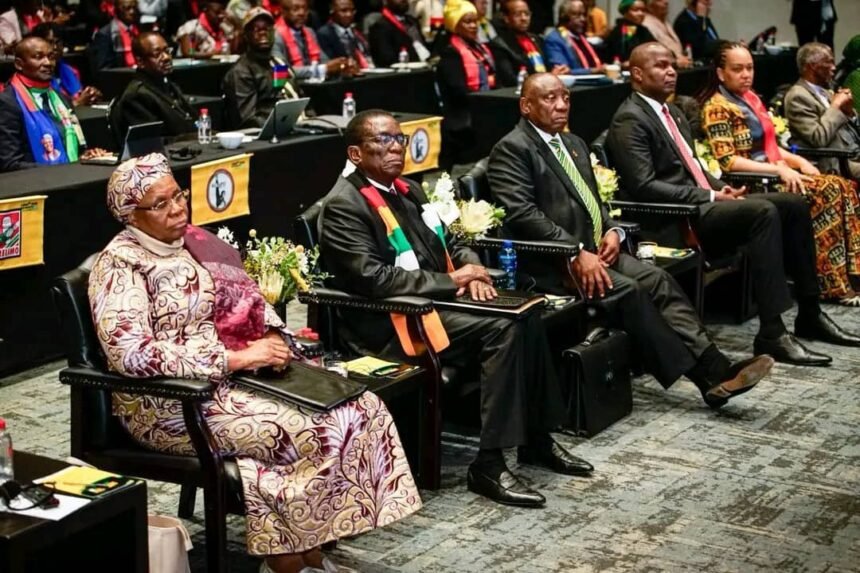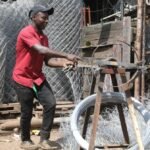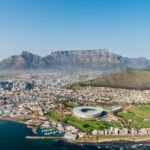More than 30 years after the fall of apartheid and colonial rule, millions of young people across Southern Africa are asking a difficult question: What happened to the promises of liberation?
Once celebrated as champions of freedom, the continent’s former liberation movements, such as South Africa’s African National Congress (ANC), Zimbabwe’s ZANU-PF, Namibia’s SWAPO, Mozambique’s FRELIMO, Angola’s MPLA, and Tanzania’s Chama Cha Mapinduzi (CCM), are now struggling to retain public trust. Their leaders speak proudly of past victories, but for a growing generation of citizens, especially the youth, that narrative rings hollow.
At a recent regional summit, these parties gathered under the theme: Defending the Liberation Gains, Advancing Integrated Socio-Economic Development, Strengthening Solidarity for a Better Africa. However, the realities on the ground paint a very different picture.
Youth unemployment is reaching crisis levels. In South Africa, more than 60% of people aged 15 to 24 are jobless. In Eswatini, the figure is even higher. Thousands of skilled workers from Zimbabwe migrate each year due to a lack of opportunities at home. Basic services are deteriorating, infrastructure is failing, and public confidence in these governments is in freefall.
For many young Africans, liberation has not meant progress, it has meant more of the same inequality, corruption, and exclusion.
One of the greatest challenges facing post-independence African countries was how to build strong economies after colonial rule. Unfortunately, many governments adopted centralised, state-controlled economic systems inspired by socialist ideologies. While well-intentioned in some cases, these models often backfired.
In Tanzania, the Ujamaa programme forcibly moved millions into communal villages. It ended in food shortages and a once-thriving agricultural economy was reduced to dependency on imports. In Zimbabwe, fast-track land reform led to a collapse in maize production, skyrocketing inflation, and widespread hunger.
Massive state-led projects consumed billions without results. Nigeria’s steel industry, for example, spent over $10 billion over three decades with almost nothing to show for it. Ghana’s state-owned enterprises operated at a loss for years, draining the public purse.
These strategies were meant to create equality and self-reliance. Instead, they often concentrated power and resources in the hands of political elites while pushing the majority deeper into poverty.
As economies faltered, corruption took root. Some leaders used revolutionary language to justify self-enrichment, what some commentators have called “Swiss-bank socialism.” Oil-rich Angola lost billions to unaccounted spending. In Libya, Muammar Gaddafi reportedly hoarded $200 billion in personal assets. Across the region, state resources were diverted into private pockets while hospitals, schools, and roads crumbled.
South Africa offers a stark example. The Zondo Commission revealed massive corruption in state-owned entities like Eskom and SARS, costing taxpayers billions. Eskom, now synonymous with rolling blackouts and financial mismanagement, has become a symbol of the country’s broken promise of post-apartheid development.
Meanwhile, policies like cadre deployment, placing loyal party members in top government roles, undermined efficiency and fuelled further decline in public services.
The younger generation, born after independence, has grown up in systems that promised everything and delivered very little. They do not carry the emotional connection to the struggle for freedom. What they see is corruption, incompetence, and a lack of accountability.
Public trust is at an all-time low. In South Africa, most young people say they no longer believe in the ANC’s leadership. In Zimbabwe, the majority of youth believe corruption is worse today than in 1980. These perceptions are not just political; they are deeply personal for a generation that feels robbed of its future.
Rebuilding Southern Africa’s future demands more than speeches and slogans. It calls for serious reform and bold decision-making.
One critical step is economic reform. Loss-making state-owned enterprises must either be fixed or sold. Private investment should be encouraged through simplified regulations and a business-friendly environment. Botswana’s success story shows that pragmatic policies can lift a country from poverty to prosperity.
Education must be aligned with the demands of the job market. Too many young people leave school without employable skills. Investment in vocational training, digital education, and STEM (science, technology, engineering, and mathematics) is key to tackling youth unemployment.
Corruption must be tackled head-on. Special anti-corruption courts, empowered oversight institutions, and strong public accountability measures are essential to rebuild trust. Investigative bodies such as South Africa’s Public Protector and Special Investigating Unit need real independence and authority.
Land reform, a long-standing issue, should focus on empowering productive smallholder farmers with proper land titles. Ghana’s success with digital land registration offers a model worth emulating. At the same time, judicial independence and democratic pluralism must be strengthened to protect citizens’ rights and create responsive governments.
The ANC’s historic loss of its national majority in the 2024 elections was not just a political shift; it was a clear message from a frustrated nation. Liberation credentials no longer guarantee support. Today’s youth demand results: jobs, education, infrastructure, and integrity.
Southern Africa’s liberation movements are now at a turning point. They can continue defending a legacy that no longer serves the people, or they can confront their failures, adapt, and build a future that works for all.
This is no longer about history. It’s about now. And for Africa’s betrayed generation, change cannot wait.










